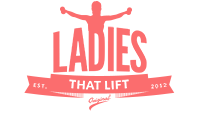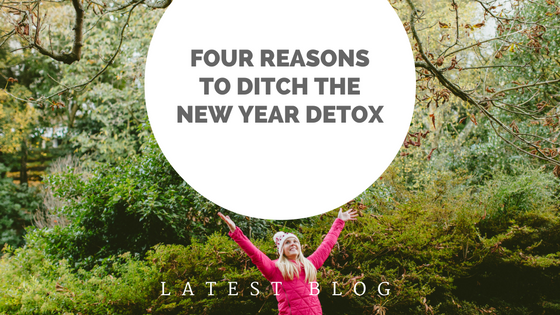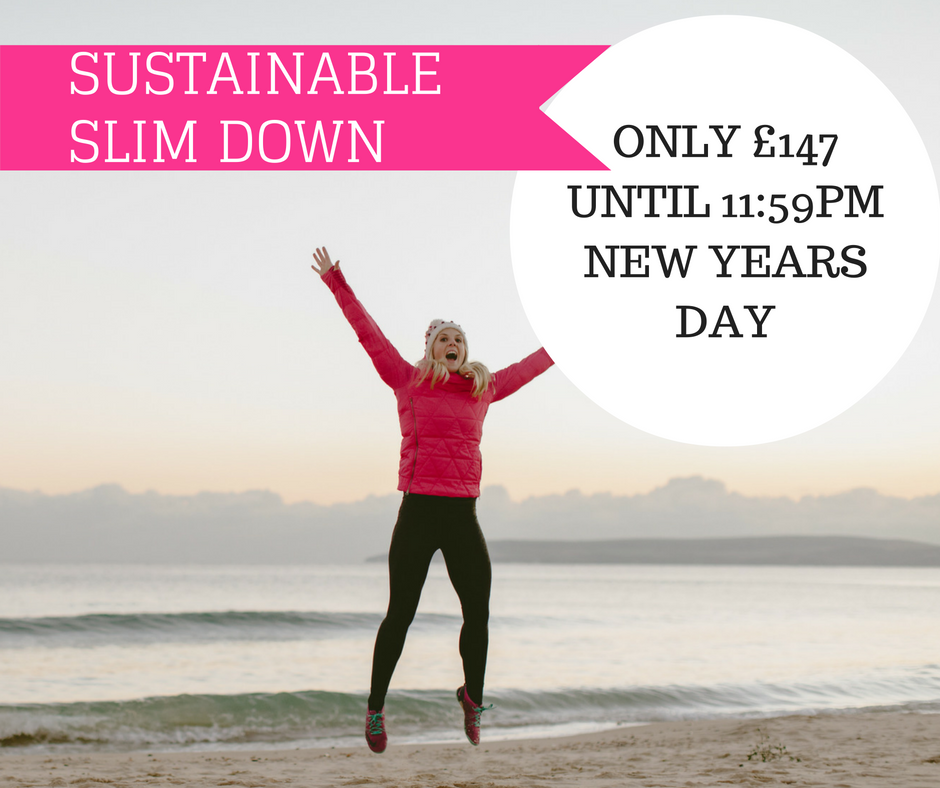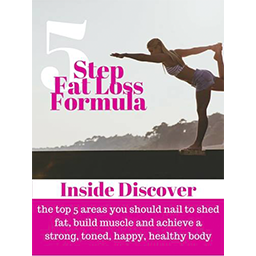I stood in front of the fridge downing a glass of grape juice. I don’t know how many glasses of grape juice I had had that day, but it was a few.
It was day 3 of my 5 day detox and I was only allowed to drink the juice of one fruit of my choice for a whole day. I had noticed that I was less bloated and my legs looked slimmer and I certainly felt very virtuous having committed to only eating fruits and vegetables the past 2 days.
But apart from that, I can’t say it was really that useful.
I was 17 at the time. I didn’t know any better.
I was literally just following the instructions from a book that I bought at the local book store.
Sure I felt good about myself now but this approach to eating was not going to really make any significant impact on my health or weight. I wasn’t creating sustainable habits that would last me a lifetime.
I had no exit strategy.
In fact, by the following week I would be doing as I always did.
It would probably take me another 13 years, 3 degrees and countless continuing professional development and self experimentation before I actually worked out what a healthy balanced diet and relationship with food looked like for me and what I want my body to be able to do.
In November I wrote a series on balancing hormones naturally. You’ll find most of this series on the blog. I actually wrote this blog about detoxification at the time and yet it seems very fitting that I should bring it back to life this time of year.
Detoxification is something that so many people get so wrong.
It’s that time of year where the health industry will be trying to sell you the idea of a “detox” or a “cleanse”.
No matter who is selling it to you, these tend to be the common ingredients:
- Low calorie
- Low protein & fat
- Likely to lack solids or large amounts of liquids – juices/smoothies/soups
- May involve shakes, pills or supplements
- May involve missing meals or fasting
I wanted to set the record straight and talk about why this approach may actually hinder detoxification, not support it and then, we can look at solutions to set you up for an awesome 2017!
Ditch the Detox Reason 1: Low Calorie Diets
Low calorie diets are a fantastic way to drop weight quickly. That includes water and muscle weight too.
You may feel great because you feel “like it is working” but perhaps you also feel not so great because your energy is low and cravings are through the roof! Restrictive behaviour is likely to create hunger, excessive hunger is likely to create binge behaviour.
Binge behaviour is likely to create self-loathing and lowered self esteem.
Additionally, calorie restriction is a stress on the body. Under-eating is the biggest stress that we faced as man-kind before we learnt how to farm. I would also add that detoxification is incredibly energetically expensive. You need to have energy to be able to detoxify. That isn’t going to happen if you are starving.
I understand that you might be keen to drop a few pounds and feel less bloated after Christmas. However, I would like to warn you that I have worked with so many women who are creating problems by their dieting behaviour in a pursuit for some self imposed body composition standard or magical number on the scale (and failing miserably!)
I prefer to get my client’s to lose weight in small energy deficits. This means that there is adequate energy for detoxification, hormonal balance, repair and recovery, good sleep and just every day living but, weight loss can still happen, just not at a million miles an hour (which increases the chances that it will actually stay off!).
Ditch the Detox Reason 2: Low Protein & Fat
We need to have enough fat in our diet to supply the building blocks for health hormonal balance, managing inflammation, making neurotransmitters, cell membranes and many other functions.
Dropping calories by cutting fat may set us up for health imbalances, if not now, but in the future.
Additionally, proteins are used to make enzymes.
We need enzymes to be able to detoxify.
Detoxification is taking something that is not useful to the body or needs to be recycled, changing it’s chemical structure and composition so that it can be excreted and then excreting it. ENZYMES do the changing chemical structure bit. Without them, you can’t do detoxification.
We get protein from our food, or we break down muscle tissue or gut lining or joint tissue or other fun stuff that you probably don’t want to be getting rid of, to supply it.
A low protein approach to detoxification just doesn’t work.
The final thing is, if you take out protein and you take out fat, that just leaves you with a pile of carbs.
Most women I work with have weight to lose. Having the majority of your diet from unopposed carbs (even if it is fruit and veg), is going to raise insulin and in doing so, potentially increase central weight gain.
Finally, fructose, the sugar found in fruit, is processed in the liver, as is any excess sugar that isn’t stored in muscle tissue. If the liver is busy processing all these fruit sugars and carbohydrates this will distract it from doing it’s other job, which is to detoxify.
Bottom line: A diet with balanced macros nutrients (proteins, carbs and fats) is for the most part beneficial compared to demonising one or any particular nutrient. In other words; when in doubt, go for balance.
Simple but effective.
Ditch the Detox Reason 3: Liquid Meals & Fasting
Now, liquid meals can actually be really great at times.
If you have digestive problems, having food which is already “chewed” so to speak, can be really helpful.
It ensures you have something that is easy on the digestive system and may help with nutrient availability.
However, living off liquid meals, especially if low in fat, protein (as already discussed) & fibre may have a negative impact on insulin levels meaning that you are more likely to crave sugar, gain weight around your mid-section and experience hormonal disruption.
Solids keep you fuller for longer.
Protein, fat and fibre do too.
Many people claim they feel “better” on a detox diet but is it because they are detoxing or is it because their digestion is working better?
When digestion is off, it is a huge drain on our immune system, selfishly pulling energy away from our brain.
So would we benefit from perhaps doing a “digestive reset” (something I advise all my clients to do), instead of a detox diet?
The next piece of the puzzle is fasting or missing meals.
Again, this is something that does have it’s place from time to time. I DO recommend:
- a reduced meal frequency: 2-3 meals per day instead of 3 main meals and snacks
- time restricted feeding: not eating very early and very late but allowing at least 12 hours between dinner and breakfast
But…
This approach should NOT be combined with low calorie, low protein, low fat or liquid only diets.
Ditch the Detox Reason 4: Shakes, Supplements and Pills
Someone selling you some sort of product without talking to you about your current diet, your sleep, your stress, your exercise, your digestion and your ability to self care is just selling your something!
Supplements are what they say on the tin…
SUPPLEMENT-ARY to a foundation of good diet, getting enough sleep, attempts to manage stress, move your body, digest well and breathe!
Detoxification requires certain nutrients to support the “biochemical transformation” and there are certain supplements that can help, but food always comes first.
But I feel It Working!?
I know a lot of people will read this and think – I hear what you are saying, but, I’ve done a detox before and I felt it working?
Now I’ve already covered the “do you feel better because you are eating better and being kind to your digestion piece?”
But sometimes people can also experience lethargy, headaches & weight loss and think they are detoxing.
If you are experiencing negative symptoms like headaches and fatigue, it could be that you are actually becoming more toxic.
As you shed some body fat with your calorie restricted approach you will likely also be liberating fat soluble toxins into circulation that create an extra burden on the body (a burden that you have limited resources with which to cope, due to said reasons above).
If you are experiencing weight loss, well, that’s great BUT you may likely be losing a lot of water, some muscle and yes, some fat too BUT is it sustainable and what happens afters?
If you have done a detox before, did you rebound after? If you didn’t, let me know.
As I have already eluded to above I did 2 when I was 17 which involved just eating fruit and vegetables and put the weight back on again within a week.
Detox is a life long journey. It’s not something that you achieve in 7 days of juicing or a 28 day sugar fast.
So in 2017, instead of jumping on to the next detox, juice fast or calorie-restrictive diet, what do you do?
Here’s what… Build Habits That You Can Sustain.
- Carbohydrate: Lower carbohydrate intake by focusing on root vegetables, plenty of greens and gluten free grains such as quinoa, buckwheat & brown rice. Limit fruit to 1-2 portions per day and if you really want a January kick-start maybe leave the grains and fruits out for the first week and pick them up in moderation from week 2.
- Protein: Increase lean proteins so that you are eating fish, poultry, venison and eggs at every meal. I recommend 1.5-2.0g/kg (or 0.75-1g per pound) of pure protein per day. Just start with a decent palm size portion and you will be fine!
- Fats: Add good fat to every meal and think Mediterranean; avocado, oily fish, nuts and seeds and olive oil. Ditch the fried foods & confectionery.
- Eat the rainbow; aim to get a variety of colourful vegetables every day
- Love your gut: Add fermented foods to your daily diet – choose from sauerkraut, kimchee, kefir or kombucha
- Reduce alcohol and drink more water, green or herbal tea and good quality coffee
- Move your body every day, even if it’s just a walk
- Make a habit of buying fresh produce, cook from scratch and prep in bulk to save time in the week
- Get outside more
- Meditate or pick an activity that helps you manage stress and do it daily!
- BONUS TIP: Don’t sweat the small stuff. Stop aiming for perfect, but just choose better and be more mindful as often as you can
And if you want to be guided through creating these changes one step at a time, there is always the Sustainable Slim Down! 
The Sustainable Slim down is my online weight loss course that I created to help women form sustainable habits, one step at a time, to create healthy weight loss and an improved understanding of what it actually means to eat a balanced diet.
It is a database of the exact tools my high end coaching clients are using to drop pounds and inches (without restrictive or obsessive behaviour) and cultivate self love.
For more information and to claim the special New Years Offer (which ends at 11:59pm on January 1st!) Just follow the link…



